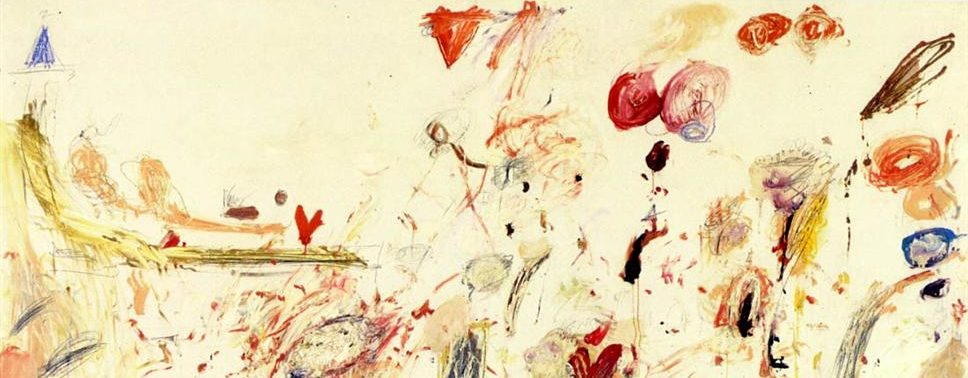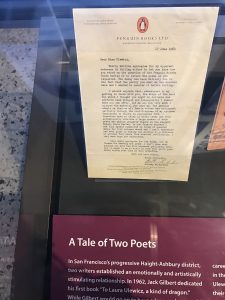The Lady’s Dressing Room
Jonathan Swift
Five hours, (and who can do it less in?)
By haughty Celia spent in dressing;
The goddess from her chamber issues,
Arrayed in lace, brocades and tissues.
Strephon, who found the room was void,
And Betty otherwise employed,
Stole in, and took a strict survey,
Of all the litter as it lay;
Whereof, to make the matter clear,
An inventory follows here.
And first a dirty smock appeared,
Beneath the armpits well besmeared.
Strephon, the rogue, displayed it wide,
And turned it round on every side.
On such a point few words are best,
And Strephon bids us guess the rest,
But swears how damnably the men lie,
In calling Celia sweet and cleanly.
Now listen while he next produces
The various combs for various uses,
Filled up with dirt so closely fixt,
No brush could force a way betwixt.
A paste of composition rare,
Sweat, dandruff, powder, lead and hair;
A forehead cloth with oil upon’t
To smooth the wrinkles on her front;
Here alum flower to stop the steams,
Exhaled from sour unsavory streams,
There night-gloves made of Tripsy’s hide,
Bequeathed by Tripsy when she died,
With puppy water, beauty’s help
Distilled from Tripsy’s darling whelp;
Here gallypots and vials placed,
Some filled with washes, some with paste,
Some with pomatum, paints and slops,
And ointments good for scabby chops.
Hard by a filthy basin stands,
Fouled with the scouring of her hands;
The basin takes whatever comes
The scrapings of her teeth and gums,
A nasty compound of all hues,
For here she spits, and here she spews.
But oh! it turned poor Strephon’s bowels,
When he beheld and smelled the towels,
Begummed, bemattered, and beslimed
With dirt, and sweat, and earwax grimed.
No object Strephon’s eye escapes,
Here petticoats in frowzy heaps;
Nor be the handkerchiefs forgot
All varnished o’er with snuff and snot.
The stockings why should I expose,
Stained with the marks of stinking toes;
Or greasy coifs and pinners reeking,
Which Celia slept at least a week in?
A pair of tweezers next he found
To pluck her brows in arches round,
Or hairs that sink the forehead low,
Or on her chin like bristles grow.
The virtues we must not let pass,
Of Celia’s magnifying glass.
When frightened Strephon cast his eye on’t
It showed visage of a giant.
A glass that can to sight disclose,
The smallest worm in Celia’s nose,
And faithfully direct her nail
To squeeze it out from head to tail;
For catch it nicely by the head,
It must come out alive or dead.
Why Strephon will you tell the rest?
And must you needs describe the chest?
That careless wench! no creature warn her
To move it out from yonder corner;
But leave it standing full in sight
For you to exercise your spite.
In vain the workman showed his wit
With rings and hinges counterfeit
To make it seem in this disguise
A cabinet to vulgar eyes;
For Strephon ventured to look in,
Resolved to go through thick and thin;
He lifts the lid, there needs no more,
He smelled it all the time before.
As from within Pandora’s box,
When Epimetheus op’d the locks,
A sudden universal crew
Of human evils upwards flew;
He still was comforted to find
That Hope at last remained behind;
So Strephon lifting up the lid,
To view what in the chest was hid.
The vapors flew from out the vent,
But Strephon cautious never meant
The bottom of the pan to grope,
And foul his hands in search of Hope.
O never may such vile machine
Be once in Celia’s chamber seen!
O may she better learn to keep
Those “secrets of the hoary deep!”
As mutton cutlets, prime of meat,
Which though with art you salt and beat
As laws of cookery require,
And toast them at the clearest fire;
If from adown the hopeful chops
The fat upon a cinder drops,
To stinking smoke it turns the flame
Pois’ning the flesh from whence it came,
And up exhales a greasy stench,
For which you curse the careless wench;
So things, which must not be expressed,
When plumped into the reeking chest,
Send up an excremental smell
To taint the parts from whence they fell.
The petticoats and gown perfume,
Which waft a stink round every room.
Thus finishing his grand survey,
Disgusted Strephon stole away
Repeating in his amorous fits,
Oh! Celia, Celia, Celia shits!
But Vengeance, goddess never sleeping
Soon punished Strephon for his peeping;
His foul imagination links
Each Dame he sees with all her stinks:
And, if unsavory odors fly,
Conceives a lady standing by:
All women his description fits,
And both ideas jump like wits:
But vicious fancy coupled fast,
And still appearing in contrast.
I pity wretched Strephon blind
To all the charms of female kind;
Should I the queen of love refuse,
Because she rose from stinking ooze?
To him that looks behind the scene,
Satira’s but some pocky queen.
When Celia in her glory shows,
If Strephon would but stop his nose
(Who now so impiously blasphemes
Her ointments, daubs, and paints and creams,
Her washes, slops, and every clout,
With which he makes so foul a rout)
He soon would learn to think like me,
And bless his ravished sight to see
Such order from confusion sprung,
Such gaudy tulips raised from dung.
This is a poem I read for my other English class. Although this poem is written by writer during the 18th century, it relates to our class as due to its employment of rhyme schemes. In “The Lady’s Dressing Room,” Swift chronicles the misadventure of Strephon as he explores the filth in his mistress dressing room. The poem is usually perceived as a misogynist satire and Swift’s attack on women. However, by looking at shift from feminine rhyme scheme to masculine rhyme scheme in the beginning of the poem, I argue that Swift’s aim to undermine his hostility towards female population.
The opening of the poem introduces a structural shift of the rhyme scheme, which implicitly signals a thematic shift of the poem from feminity to universality. As evident in the opening couplets ‘Five Hours, (and who can do it less in?)/By haughty Celia spent in Dressing’, the two lines end with two unstressed syllables ‘in’ and ‘dressing,’ which signify a feminine rhyme scheme. (feminine rhyme schemes refer to rhyme between stressed syllables followed by an unstressed syllables .). In English literature, feminine rhymes are not only rare but also generally perceived as softer, less forceful and more pliable poetic technique. Especially during the 18th century, poets usually write poems in masculine rhyme scheme or in free verse. The feminine rhyming couplets, which introduce the setting of the poem as a lady’s dressing room, particularly emphasize the womanist feature of the dressing room. However, the feminine rhyme scheme changes to masculine rhyme scheme right after the first stanza, as the first line in the second stanza ends with a stressed syllable ‘void.’ The masculine rhyme symbolizes a universal poetic form that is more impersonal and unrelenting. It is no accident that the speaker chooses to finish the rest of poem with the masculine rhyme scheme. The content of the poem targets on the speaker’s descriptions of the lady’s dressing room, which is always associated with female sexuality and artifice in 18th century England. The fact that the feminine implications of the dressing room is strictly related to female sexuality almost seemingly suggests the poem targets on denouncing female population. However, the speaker creates a sudden shift from feminine rhyme to masculine rhyme, which is an indication that the poem itself is not entirely about female body, sexuality or artifice, but deals with the universal, as reflected in the impersonal and unrelenting features of masculine rhyme scheme.


